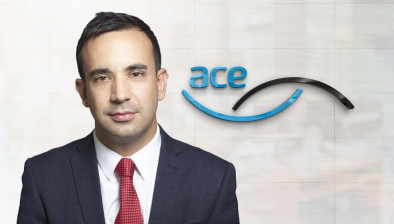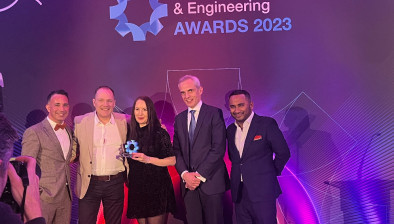Ross-industry reverse mentoring pilot demonstrates benefits to business and employees

Calls have been made for wider implementation of reverse mentoring in the construction industry after a nine-month pilot has delivered positive results for a sector traditionally slow to adapt to new trends and dealing with a skills shortage.
Reverse mentoring turns traditional mentoring on its head and sees less experienced employees mentoring senior executives.
It has been used to ensure senior staff are up to speed on technology, tackling unconscious bias, reducing discrimination and positively improving workplace diversity in terms of gender, ethnicity and age.
In the true spirit of reverse mentoring the pilot, championed by the Association for Consultancy and Engineering (ACE) – the business association representing the interests of professional consultancies and engineering companies operating in the natural and built environment – was led as a business resilience initiative by its group for early career professionals and emerging leaders, Progress Network.
This transformed into an industry pilot with particular focus on up-skilling senior executives in the use of technology, driven by the Network.
Pilot co-ordinator and Progress Network first vice chair, Rebecca Wooding said: “We were delighted to pioneer this pilot across our industry and I’m pleased to see that our pairings unanimously agreed that their experiences had smashed their previously held unconscious bias – senior staff are not inflexible nor reluctant to change and junior members of staff are not impatient nor demanding.
“Mentees gained invaluable knowledge and understanding of a range of technological platforms and their uses, while mentors benefitted from working face-to-face with management, tapping into their lengthy institutional and industry knowledge, and a better understanding of their organisation. It’s truly a win-win for all involved.”
Full findings from the nine-month pilot are to be published in a new ACE report, Transforming the workplace: Piloting reverse mentoring and shared at the Skills Summit 2018 on 6 June in London. The event brings together consultants and engineers to discuss the major skills issues facing the industry.
The report will explore how:
ACE chief operating officer, Anil Iyer said: “I’m delighted to share the findings of our reverse mentoring pilot which will be of interest to any organisation looking at implementing a similar scheme. I look forward to continuing the conversations and championing the concept to businesses in and outside our sector.
“Our industry, like many others, is struggling to adapt to changing times. How do our businesses deal with the loss of knowledge as senior members of staff retire, how do we attract and most importantly retain, millennials? While reverse mentoring isn’t a silver bullet, it can, and should, be viewed as part of the solution to transform any business into a truly sustainable and modern workplace.
“The next step is a call to action to all organisations working in the natural and built environment to truly embrace reverse mentoring as an opportunity to improve the business environment across an entire sector.”
The pilot was composed of 22 participants from seven companies: Arcadis, BWB, Peter Brett Associates, Max Fordham, Mott MacDonald, Tony Gee and Partners and WSP.





















